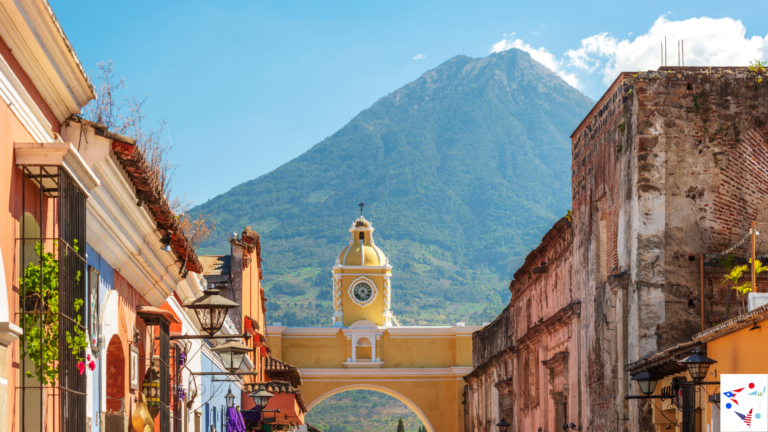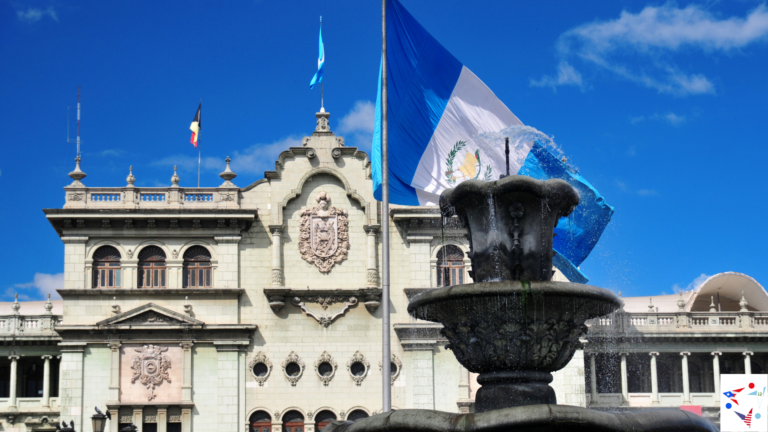Guatemala
History of Guatemala: A Journey Through Time

Guatemala is a country with a rich and diverse history that dates back thousands of years. Its territory was the birthplace of the Maya civilization, one of the most advanced cultures in Mesoamerica, whose achievements in astronomy, architecture, and writing continue to amaze the world.
Pre-Columbian Era and Maya Civilization
Before the arrival of Europeans, Guatemala was home to numerous Maya cities such as Tikal, El Mirador, and Uaxactún. The Maya developed a complex system of hieroglyphic writing, an accurate calendar, and an advanced social structure. However, by the 9th century A.D., many of these great cities were abandoned for reasons still debated, such as climate change, internal conflicts, and economic crises.
The Spanish Conquest (1524)
In 1524, Spanish conquistador Pedro de Alvarado arrived in Guatemala, facing off against the indigenous peoples, particularly the Kaqchiquels and K’iche’s. After a series of battles, the Spanish imposed their rule, establishing the Viceroyalty of New Spain and subjecting the indigenous population to a system of exploitation.
Colonial Era and Struggle for Independence (1524-1821)
For nearly 300 years, Guatemala was part of the Kingdom of Guatemala within the Viceroyalty of New Spain. Colonial society was marked by the exploitation of indigenous people and the imposition of Christianity. In 1821, influenced by independence movements in the Americas, Guatemala declared its independence from Spain and, shortly after, briefly joined the Mexican Empire of Agustín de Iturbide before becoming part of the Federal Republic of Central America.
19th Century and Consolidation as a Nation (1823-1900)
In 1839, Guatemala permanently separated from the Central American Federation and became an independent nation. Throughout the 19th century, the country experienced a series of political conflicts between liberals and conservatives, as well as increasing foreign influence in its economy, particularly in coffee production.
20th Century: Revolution and Armed Conflict
The 20th century was marked by significant changes. In 1944, a democratic revolution overthrew the dictatorship of Jorge Ubico, leading to a period of reforms. However, in 1954, a U.S.-backed coup overthrew President Jacobo Árbenz, resulting in decades of instability and repression.
Between 1960 and 1996, Guatemala endured a brutal internal armed conflict between the government and guerrilla groups. This conflict left over 200,000 dead and disappeared, mostly affecting the indigenous population. In 1996, the Peace Accords were signed, ending the war and starting a process of national reconciliation.
Guatemala Today
Today, Guatemala is a country full of contrasts, with great cultural and natural wealth, but also facing social and economic challenges. The diversity of its people, its ancestral traditions, and its resilient spirit make Guatemala a unique nation in the world.
Discover its landscapes






Presidents of Guatemala
- Mariano Rivera Paz (1839-1841)
- José Venancio López (1841-1842)
- Mariano Rivera Paz (1842-1844)
- Rafael Carrera y Turcios (1844-1848)
- Juan Antonio Martínez (1848)
- José Bernardo Escobar (1848-1849)
- Mariano Paredes (1849-1851)
- Rafael Carrera y Turcios (1851-1865)
- Pedro de Aycinena (1865)
- Vicente Cerna y Cerna (1865-1871)
- Miguel García Granados (1871-1873)
- Justo Rufino Barrios (1873-1885)
- Alejandro Manuel Sinibaldi (1885)
- Manuel Lisandro Barillas Bercián (1885-1892)
- José María Reina Barrios (1892-1898)
- Manuel Estrada Cabrera (1898-1920)
- Carlos Herrera y Luna (1920-1921)
- José María Orellana (1921-1926)
- Lázaro Chacón González (1926-1930)
- Manuel María Orellana Contreras (1930)
- José María Reina Andrade (1930-1931)
- Jorge Ubico Castañeda (1931-1944)
- Federico Ponce Vaides (1944)
- Juan José Arévalo Bermejo (1945-1951)
- Jacobo Árbenz Guzmán (1951-1954)
- Carlos Enrique Díaz de León (1954)
- Elfego Hernán Monzón Aguirre (1954)
- Carlos Castillo Armas (1954-1957)
- Luis Arturo González López (1957)
- Guillermo Flores Avendaño (1957-1958)
- Miguel Ydígoras Fuentes (1958-1963)
- Enrique Peralta Azurdia (1963-1966)
- Julio César Méndez Montenegro (1966-1970)
- Carlos Manuel Arana Osorio (1970-1974)
- Kjell Eugenio Laugerud García (1974-1978)
- Fernando Romeo Lucas García (1978-1982)
- Efraín Ríos Montt (1982-1983)
- Óscar Humberto Mejía Víctores (1983-1986)
- Marco Vinicio Cerezo Arévalo (1986-1991)
- Jorge Serrano Elías (1991-1993)
- Ramiro de León Carpio (1993-1996)
- Álvaro Arzú Irigoyen (1996-2000)
- Alfonso Portillo Cabrera (2000-2004)
- Óscar Berger Perdomo (2004-2008)
- Álvaro Colom Caballeros (2008-2012)
- Otto Pérez Molina (2012-2015)
- Alejandro Maldonado Aguirre (2015-2016)
- Jimmy Morales Cabrera (2016-2020)
- Alejandro Giammattei Falla (2020-2024)
- Bernardo Arévalo de León (2024- present )
